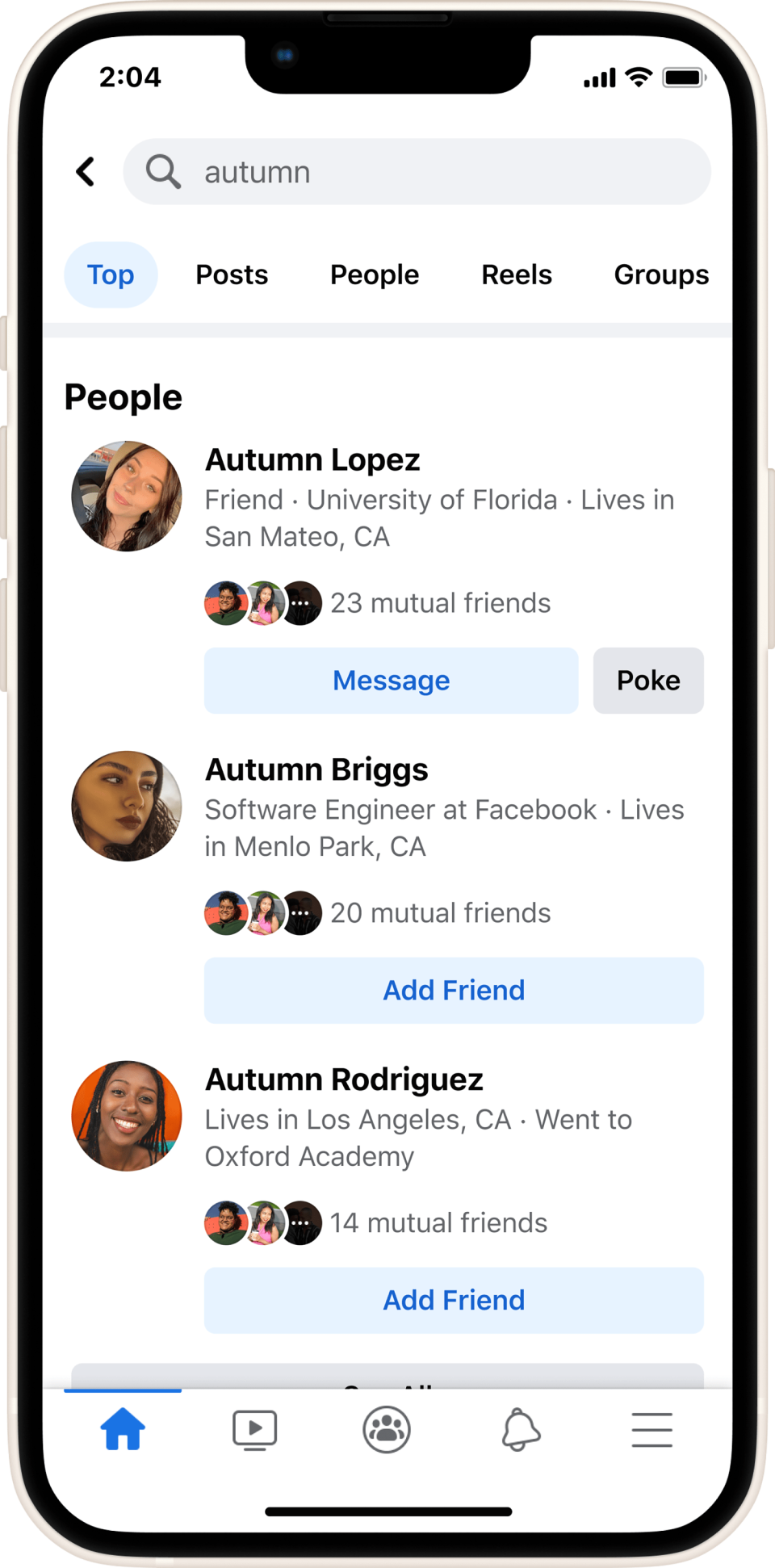Facebook users are rediscovering the 'poke'

More Facebook users in recent weeks are opening a notification they forgot even existed: A “poke” from a friend.
Poking was perhaps the earliest feature to promote interaction among Facebook users. It came with the site’s launch in 2004, long before likes and reactions were introduced. During its heyday in the early 2010s, the function was a simple means of saying “hi.” The ability to continually poke one person back and forth often led to poke wars that, eventually, fizzled out as the function itself faded into obscurity.
Facebook said it saw a 13-fold spike in “poking” over the past month, with more than half of all pokes being sent by users between 18 and 29 years old. The company declined to share specific numbers on its usage.
The recent surge came after the Meta-owned platform quietly updated the feature last month, making it easier to find. Typing variations of “poking” in the search bar will lead users to a Pokes page, where they can see who’s poked them as well as a list of suggested friends to poke. Users can now also find a “Poke” button under friends who show up in search results.
“We know poking has strong network effects, but we didn’t expect poking to grow so rapidly after these changes,” a spokesperson for Meta wrote in an email. “We didn’t announce anything about poking at the time either.”
For some longtime Facebook users, the feature still evokes a strong sense of nostalgia.
Brooklin Dugey, 26, said she used to dole out pokes to everyone she knew. More than a decade later, she said she still finds the interaction funny — although nowadays she limits her poking to just close friends and family.
“I think it’s just a silly, cute little way to reach out to someone and to keep a streak going,” Dugey said. “It’s such a simple thing to do but also just being called a ‘poke’ tickles me.”

Some online also expressed surprise that Gen Z contributed most to the recent increase in poking, wondering how they could’ve known about such an old feature. But many older members of Gen Z were active Facebook users when poking was first popular back in their adolescent years.
Karan Thakkar, 27, said he participated in frequent poke wars with his friends back in high school, turning the interaction into a competition of who could give the last poke. For him, clicking “Poke Back” was a low-effort way to let a friend know he was thinking of them without having to hold a conversation or even switch to a different page.
But Thakkar said he wouldn’t be surprised if younger members of his generation are also enjoying poking as a new discovery. He suspects Facebook is “just trying hard to stay relevant” among the youth — but this time, the platform may find some success.
“People are tired of every app becoming essentially TikTok, and of shopping being promoted everywhere,” Thakkar said. “So any new social experience that sort of feels intimate, like more one-on-one and less like you’re broadcasting stuff… I think they are looking for something like that.”
While current young adults may not have been as active on Facebook during its golden era, some say it may in fact be the Boomers, not Gen Z, who are less likely to recognize the classic Facebook poke.
After realizing that the poke function was still around, Simona Stamatovska, 32, went straight to Facebook and began poking everyone from friends to relatives to co-workers. She said the ones who didn’t immediately know what it meant were older users who joined Facebook at a time when young people were already jumping ship to the next hip platform.
Over the years, social media users have compared the Facebook “poke” to other low-key interactions such as an Instagram story's “like” or a TikTok “nudge.” Still, Stamatovska views the poke as the “OG silent move.” What sets it apart, she said, is the pointing hand that symbolizes such a silly yet affectionate act.
“When I see that someone’s poking me, I instantly picture their hand in that poke position, and it brings a smile to my face,” Stamatovska said. “While other social media interactions are pretty straightforward — like, share, repost, comment — I still see the poke as a fun, gamified way to say hi on Facebook.”
This article was originally published on NBCNews.com

